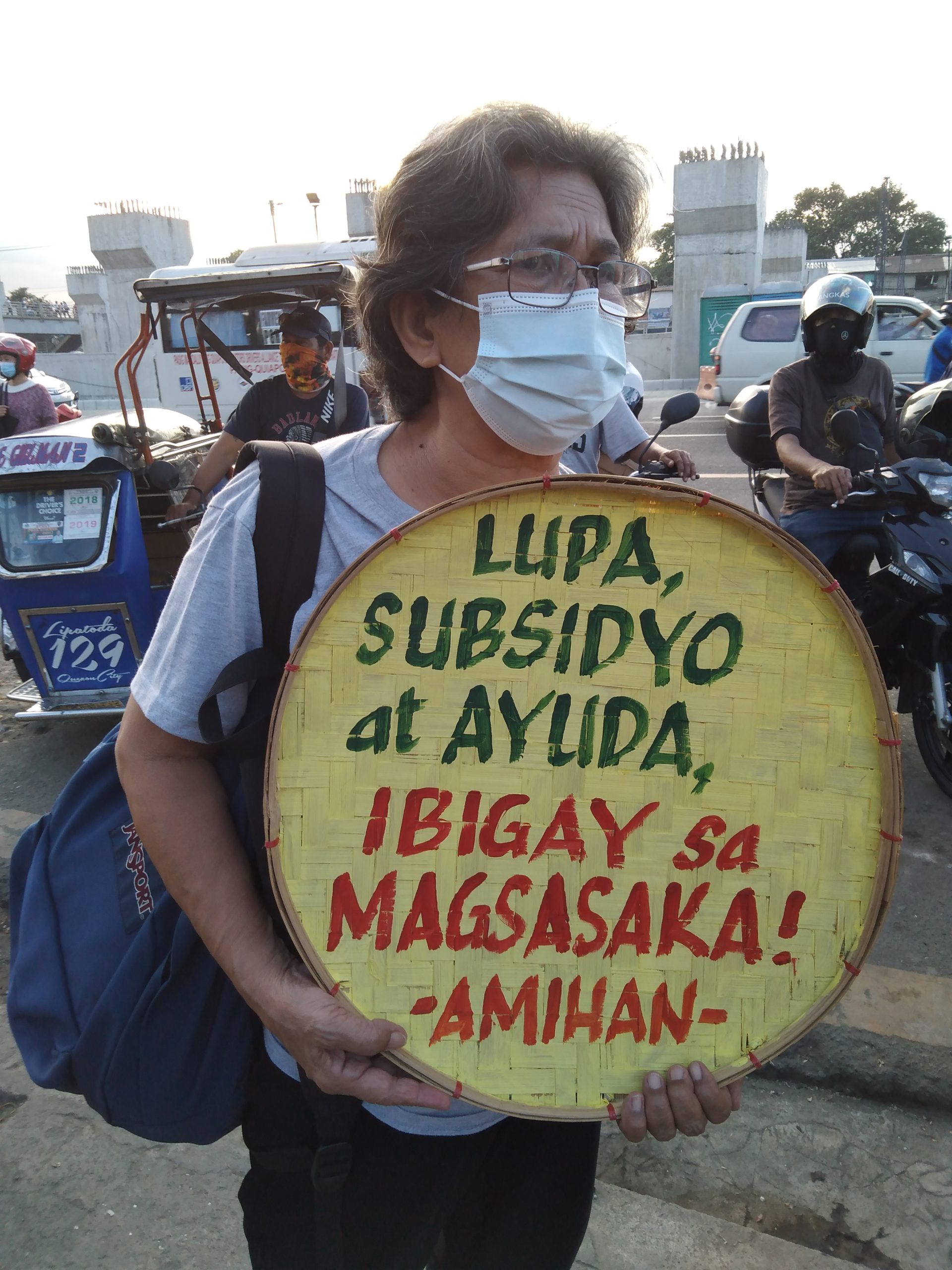The Amihan National Federation of Peasant Women and rice watch group Bantay Bigas joined various groups at a “Black Friday Protest” along Commonwealth Avenue, near Litex public market in Quezon this late afternoon, pushing the Duterte regime to address the price shocks in food products, such as meat, vegetables, fish, rice and other agricultural commodities. The groups also denounced the government for its inaction when it is basic that high prices are already affecting poor sectors in the country. They also reiterated their long-running demand of “ayuda sa mga magsasaka” as ill-advised lockdown policies under the guise of response to the pandemic, worsened by the successive typhoons, devastated the production capacity of the peasant sector that is certain to lead increasing trend in retail prices.
“Matagal na naming sinisigaw ito noong nakaraang taon pa, na bigyan ng ayuda ang mga magsasaka para masiguro ang kanilang kabuhayan at suplay ng mga pagkain sa mga syudad tulad ng Metro Manila, pero hindi nakinig si Duterte at pinabayaan ang mga magsasaka at ngayon ay biktima ang mas malawak na populasyon sa mga nagtataasang presyo. Si Duterte mismo ang may-gawa nito at salot siya sa mga magsasaka, manggagawa at iba pang mahihirap na sektor. Kung inutil siya sa pandemya, ngayon naman ay kitang kita natin na inutil siya sa pagpigil sa pagtaas ng mga presyo,” exclaimed by Amihan National Chairperson Zenaida Soriano.
This January, the price shocks included of pork to as high as P380 this January from last month’s P300 per kilo or an increase of 26%, or 52% from its last year’s price of P250, while whole chicken to P190 per kilo from last month’s P170, or about 12% increase. Moreover, said that prices skyrocketed to 66% from last year including the price of red onion from P120 to 200 per kilo; sili from P600 to P800.
“As immediate demand, we also urge the government to intervene and set a price ceiling affordable to to poor consumers on these agricultural commodities,” Soriano added.
Under the Republic Act 7581 or Price Act, the government is empowered to control prices and set a price ceiling on “basic necessities” on the basis of state of calamity, emergency and prevalence of price manipulation.
On the producers’ side, the group said that peasant families’ monthly cost of living reaches to P15 to P21,000 or an average of P478 to 700 daily was affected of this price surges. Included on their daily cost of living were kilos of rice, fish, vegetables which should be affordable.
Amihan echoed its call for P10,000 financial assistance and P15, 000 production subsidy for the farmers, peasant women, agricultural workers, fisherfolk and other rural-based sectors and lambasted the Department Agriculture for offering of various loans and loads of requirements to those already engrossed in debts.
“The present situation is worse, as due to lockdowns, bankruptcies among them are widespread. If this remains unaddressed and the prices of basic agricultural commodities will continue to rise, we will certainly face a chronic food crisis as the poor producers and consumers won’t be able to afford the food in the market,” Soriano ended. ###

